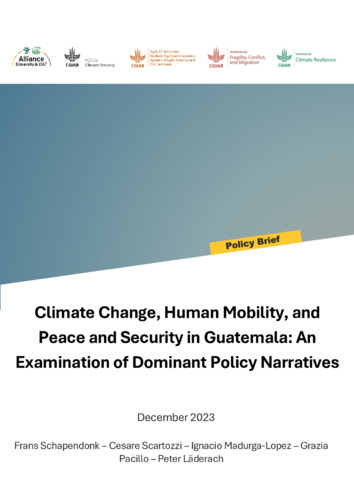Climate change, human mobility, and peace and security in Guatemala: An examination of dominant policy narratives
This policy brief seeks to assess the current ‘state of play’ of Guatemala’s national policy discourse with regards to the intersection of climate change, migration, food and nutritional insecurity, and peace and security. It does so through the deployment of a policy coherence and awareness analysis (PCAA) methodology. We find that despite environmental factors being increasingly recognised as drivers of mobility, Guatemalan policy discourse is generally reluctant to identify environmental migrants as a distinct legal and ontological category; that discourses around climate-related mobility tend to emphasise mobility occurring for economic reasons tied to the functioning of food, land, and water systems; that climate action is rarely presented as an opportunity to reduce displacement or promote the inclusion of migrants or displaced peoples; and that the most important institutions for the management of climate-related mobility trends specifically appear to have limited opportunities for cooperation and coordination. This brief concludes with a set of recommendations for decision-makers in Guatemala to improve the integration of this nexus into policy and strategy.

